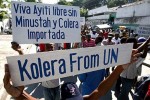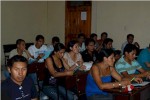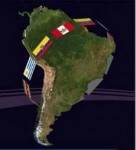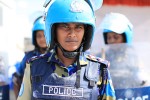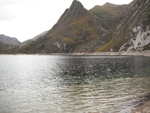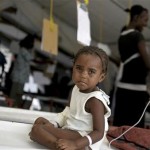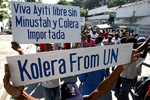Colonialism in a Poncho: Subordination of Panama to Multinational Force | Otra vez el Comando Sur de EEUU Avanza la militarización subordinada de Panamá
Marco A. Gandásegui Jr, America Latina en Movimiento | Translation by Dady Chery, Haiti Chery. In an annual exercise called Panamax, from August 6 to August 17, 2012 Panama was virtually occupied by troops from the U.S., France, Canada, the Netherlands, and 14 supposed Latin American allies, although the Panamanian Constitution says Panama has no army and its sovereignty is inalienable and nontransferable. (English | Spanish).
Continue reading →



